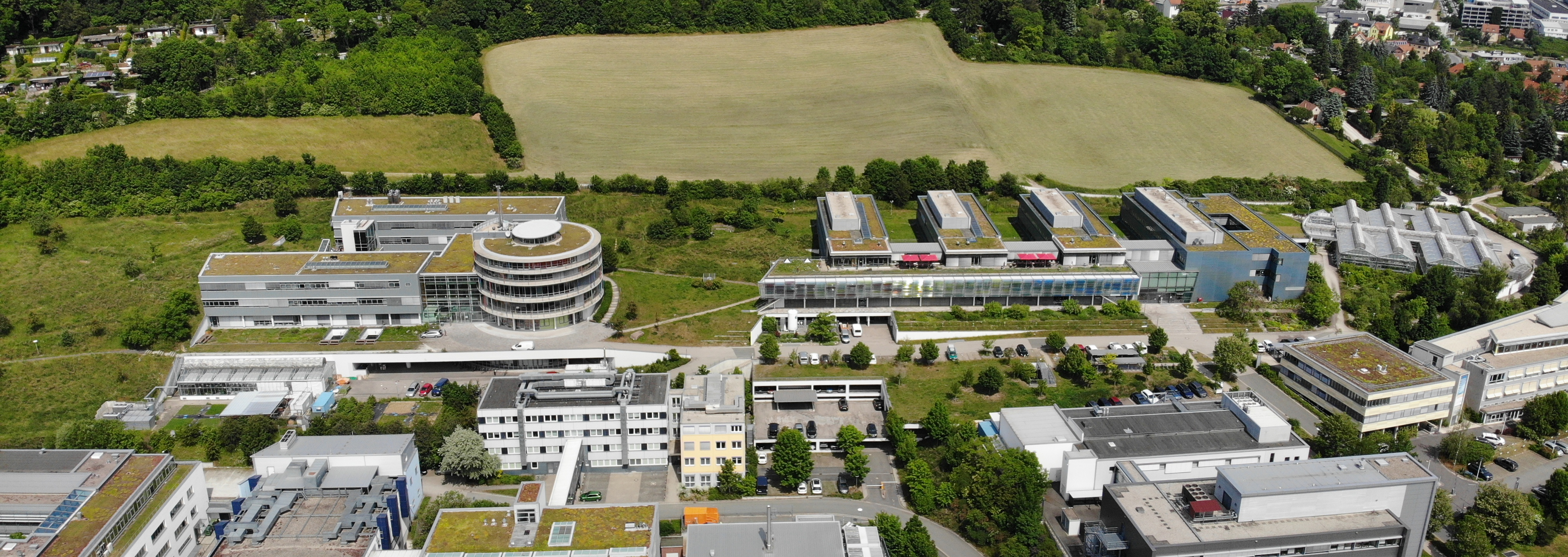
KEYNOTE
Diversity in plant functional group responses drive ecosystem fluxes during drought and recovery
2nd June 2022 | 1.35 pm – 2.05 pm
Hans-Knöll-Straße 10, 07745 Jena, Germany
BGC Lecture Hall
Zoom: will be provided
Session 2 – Processes shaping biosphere-atmosphere interactions (Susan Trumbore, moderator)
2nd June 2022 | 1.30 pm – 3.30 pm
Abstract
Droughts increase in intensity and frequency worldwide and endangers ecosystem functioning, but mechanisms determining ecosystem susceptibility to drought and legacy during recovery remain poorly understood. To disentangle complex ecosystem dynamics we imposed a 9.5-week drought on the Biosphere 2 tropical rainforest, a thirty-year old enclosed forest. We traced ecosystem scale interactions through a whole-ecosystem labelling approach in the Biosphere 2 Tropical Rainforest, the B2 Water, Atmosphere, and Life Dynamics (B2WALD) experiment. We analysed total ecosystem exchange, soil, trunk and leaf fluxes of H2O, CO2 and volatile organic compounds (VOCs), and their stable isotopes over five months. To trace changes in soil-plant-atmosphere interactions we labelled the ecosystem with a 13CO2-isotope and traced the carbon flow from the leaves to stems, roots, and soil. Subsequently, we introduced 2H-labelled deep-water label during severe drought, providing a unique opportunity to evaluate the importance of deep-water reserves, transit times and legacy effects during the recovery of ecosystem functioning. Drought sequentially propagated through the vertical forest strata, with a rapid increase in vapor pressure deficit, the driving force of tree water loss, in the top canopy layer and early dry-down of the upper soil layer but delayed depletion of deep soil moisture. Gross primary production (GPP), ecosystem respiration (Reco), and evapotranspiration (ET) declined rapidly during early drought and moderately under severe drought. Atmospheric VOC composition was highly dynamic, with peak emissions of isoprene during early drought followed by monoterpenes and hexanal during severe drought. Ecosystem 13CO2-pulse-labeling showed that drought enhanced the mean residence times of freshly assimilated carbon- indicating down-regulation of carbon cycling velocity and delayed transport form leaves to trunk and roots. Interestingly, all deep-rooted canopy trees taped into deep-water reserves, but spared deep water reserves until severe drought and exhibited long transit times until d2H-labelled water was transpired.
These data highlight the importance of quantifying drought impacts on forest functioning beyond the intensity of (meteorological) drought, but also taking the structural and functional composition of the forest into account.
Biography
Professor Christiane Werner studied biology at the University of Cologne. She conducted her PhD at the Universities of Bielefeld and Lisbon, studying structural and functional adaptations of Mediterranean macchia species and modelling. After a post-doc in an EU-network NETCARB (Network for Ecophysiology in Closing Terrestrial CARbon Budget), she was appointed Junior Professor for Plant Ecophysiology at the University of Bielefeld in 2004, where she established her research group and a laboratory for stable isotopes. In 2012, she became professor for Agroecosystem Research at the University of Bayreuth where she led the working group Ecosystem Research in Agricultural and Natural Systems. Since 2015, she chairs the Professorship of Ecosystem Physiology at the Albert Ludwig University’s Faculty of Environment and Natural Resources. As a plant ecophysiologist by training, she is interested in plant and ecosystem responses to climate change, investigating processes from molecular to ecosystem scale with experimental lab and fieldwork. Her group assess vegetation response to climate change and feed-backs within the biosphere-atmosphere system, tracing different processes such as stress adaptations, soil-plant-atmosphere interaction, invasive species or ecophydrological processes. Her research on the interplay between plant volatile organic compound (VOC) emissions and CO2 metabolism from sub-molecular to ecosystem scales received a Consolidator Grant from the European Research Council (ERC).
